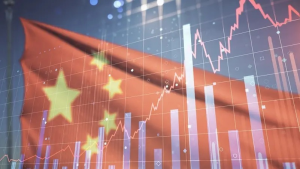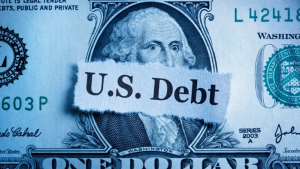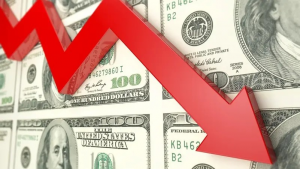For investors trying to assess how soon interest rate moves are likely to come a closely watched U.S. inflation gauge along with preliminary June inflation data from some euro zone economies will be in the spotlight this week. Concerns over signs of big tech exhaustion plus escalating trade tensions are also in focus. Here’s your look at what's happening in markets for the week ahead.
US inflation The Fed’s favoured inflation gauge, the personal consumption expenditures price index is due for release on Friday and should show whether a nascent slowdown in inflation is continuing.
But recent PCE readings have not been in line with expectations. The latest reading showed U.S. inflation unexpectedly tracking sideways in April.
Another such reading could undermine the argument that rate cuts are coming soon. Unlike the Fed, markets are still holding out for two rate cuts this year.
The economic calendar also includes June data on consumer confidence along with May data on both new and existing home sales. There is also a third estimate of first-quarter economic growth, plus data on durable goods orders for May.
Tech rally may be overheating Many investors believe the long-term case for tech stocks is solid, given their strong earnings and excitement over the revolutionary potential of artificial intelligence. But huge price gains, including Nvidia (NASDAQ:NVDA)'s 155% year-to-date run, have stirred worries that the tech rally might be getting stretched.
Market laggards such as small caps and so-called value stocks such financials and industrials may be looking like bargains.
But even if a pullback does occur, there are few signs’ investors would leave tech and growth stocks for long. Betting against tech has been a losing proposition over the last decade, as the Nasdaq 100 index has advanced more than 400% while the Russell 1000 Value is up about 70% over the same time.
Tech could also rebound fairly quickly as investors rush to buy the dip.
Oil prices Oil prices eased about 1% on Friday on worries that global oil demand growth could be hit by a strong U.S. dollar and negative economic news from some parts of the world.
For the week, both crude benchmarks were up about 3% after gaining about 4% the previous week.
The U.S. dollar rose to a seven-week high versus a basket of other currencies Friday with the Federal Reserve's patient approach to cutting interest rates contrasting with more dovish stances elsewhere.
Lower rates could support oil prices, which have been dragged this year by lackluster global demand. A U.S. rate cut would make borrowing cheaper in the world's largest economy, galvanizing the appetite for oil as production picks up.
In the week ahead oil prices are also likely to remain supported by growing geopolitical risk premium.
Eurozone inflation In the euro zone, France, Italy and Spain are to release preliminary June inflation data on Friday.
The data will set the tone for a euro zone-wide print the following week, key for traders trying to gauge how many times the European Central Bank will cut rates this year.
The ECB cut rates on June 6, but still strong domestic inflation and wages have raised question marks on how many more will follow.
Traders expect one more cut and a roughly 64% chance of a second by year-end, down from nearly 80% before the June meeting.
Any upside surprise would sour the mood for investors grappling with fresh political uncertainty after French President Emmanuel Macron called a first round French election on June 30.
Trade tensions China and the European Union have agreed to start talks on the planned imposition of tariffs on Chinese-made electric vehicles (EVs) being imported into the European market.
Earlier this month Brussels proposed hefty duties to combat what the European Union considers excessive subsidies. The EU's provisional duties of up to 38.1% on imported Chinese EVs are set to apply by July 4, before coming into full effect in November.
The European Commission's June 12 announcement followed a move by the United States to hike tariffs on Chinese cars in May and opens a new front in the West's trade war with Beijing.
Chinese authorities have hinted at possible retaliatory measures through state media commentaries and interviews with industry figures.













